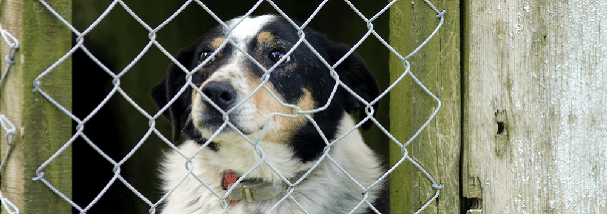 We have seen a lot of cases of coughing over the last few days. There is clearly an outbreak of Kennel Cough in the Teddington area. I will therefore write a few notes on what it is and what we can do to prevent or treat the condition.
We have seen a lot of cases of coughing over the last few days. There is clearly an outbreak of Kennel Cough in the Teddington area. I will therefore write a few notes on what it is and what we can do to prevent or treat the condition.
Signs of Kennel Cough
Kennel cough is an infectious disease that causes a harsh, hacking cough in dogs. It often makes people report that their dog is acting like they have something stuck in their throat.
It may be mild and require no treatment or may lead to severe and life-threatening pneumonia (although thankfully this is very rare). There is always lots of coughing whether they are feeling poorly or continuing to run around full of energy.
The incubation period from exposure to clinical signs varies from two to fourteen days and coughing often lasts for one to two weeks.
Dogs will often make a variety of respiratory sounds including coughing, reverse sneezing, retching and the production of foamy mucus that should not be confused with vomiting. They may sometimes be off their meals, run a fever and become listless.
What causes it?
There are a number of organisms that can cause Kennel Cough. Including B. bronchiseptica (a bacterium) Parainfluenza (one of several viruses) and Mycoplasma canin (neither a virus nor a bacteria but something in the middle!). It is often found that your dog will have more than one of these causing problems at the same time.
These organisms can be very infectious, as is the case at the minute, where large numbers of dogs are affected. Thankfully the strain does not seem to be too severe.
How does my dog catch this?
Infection is often caught from close contact with another dog and/or sharing the same air-space. Examples of this could include when playing in the park, on a walk by the river, at the groomers or when in a boarding establishment. Most of the infections are transmitted through the air, although it can also be passed on toys and food bowls.
Diagnosis and treatment
At the clinic we will often diagnose kennel cough by performing a good examination to ensure that the cough is not due to one of the other many causes of coughing and there are no serious complications such as pneumonia.
Treatment may involve anti-inflammatories to bring down a fever, medications to help suppress the cough to give some relief and antibiotics to treat the Bordetella infection. I find each case is different so there is no fixed formula to get them better.
We also recommend that your pet is kept apart from others for a few days to help to prevent it spreading in the local population.
Prevention through vaccination
As we discussed, there are lots of different organisms that can cause Kennel Cough and lots of different strains found in then environment. However, the organisms most commonly encountered, such as Parainfluenza virus are included in their annual vaccines.
Protection against Bordetella bronchiseptica can be given using an intranasal vaccine. Protection will occur 4-5 days after administration and last for about 12 months. Some Boarding Kennels and Dog Walkers insist that this vaccine is given. On balance, it is probably a good idea but if your pet is head shy it can be difficult to administer. It may also not give full protection but will dramatically reduce the severity of signs.
If your pet has not had a kennel cough vaccine in the last 6-12 months we would recommend that they come in to the clinic and get one. We are very happy to answer any questions if you want to call the clinic, as we are here to help!


